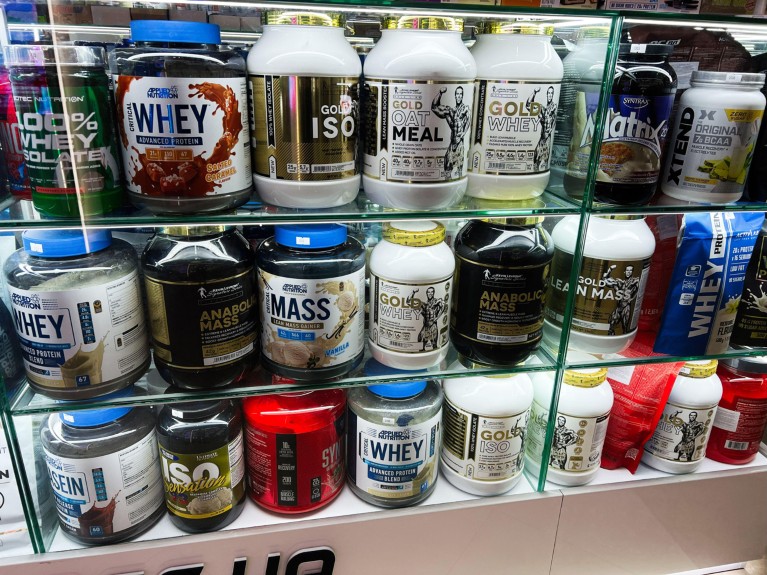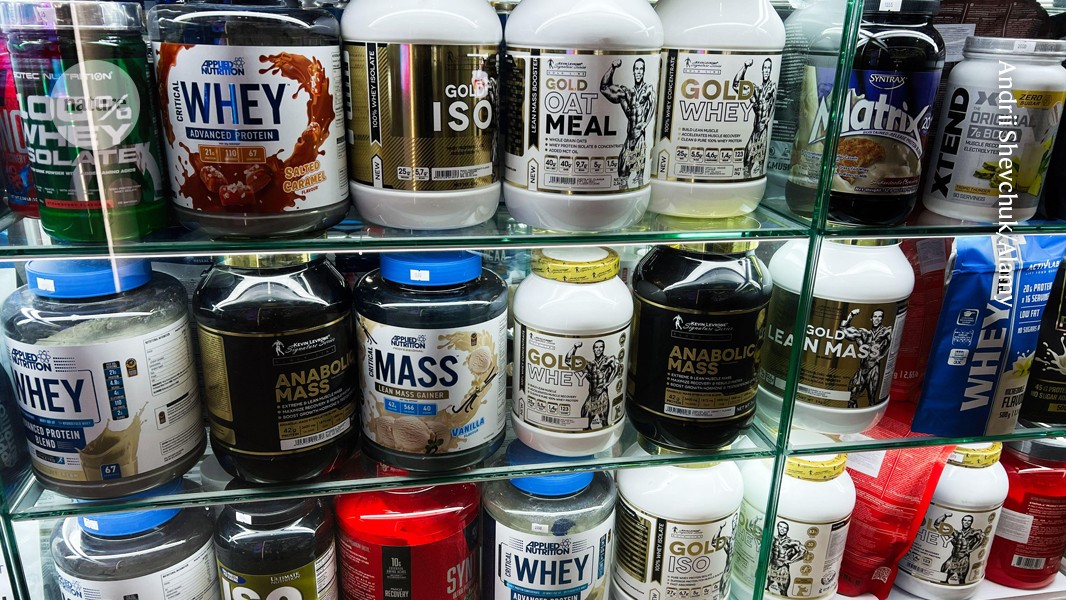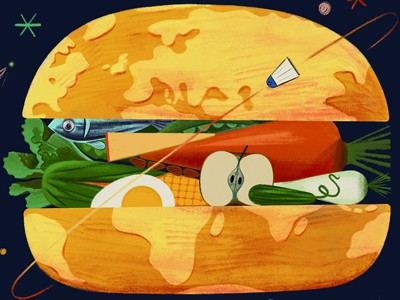
Protein powders are a booming industry.Credit: Andrii Shevchuk/Alamy
Protein has become a buzzword in health and wellness circles, with social-media influencers touting high-protein diets as the ultimate solution for weight loss and muscle gain. A search on the social-media platform TikTok for “200 grams of protein a day” yields dozens of videos offering tips on how to stay fit by reaching that target, the equivalent of more than seven servings of cooked steak. The market has responded with a flood of products promising to boost protein intake, including powders, bars, cookies, yogurt and even popcorn.
But the scientific evidence supporting the protein craze is mixed. Nature spoke to researchers about what’s behind this trend and who might benefit from protein supplements.
From meat extract to whey protein
It’s unclear what sparked the current protein obsession. But products marketed for their protein content have been around since the 1860s, says Hannah Cutting-Jones, a food historian at the University of Oregon in Eugene. The concept of macronutrients — carbohydrates, fat and protein — had just been introduced when one of the first scientists to study them, German chemist Justus von Liebig, launched a product called Liebig’s Extract of Meat as a cheap substitute for the real thing. (Its nutritional value was later shown to be negligible.)
What humanity should eat to stay healthy and save the planet
Since then, “proteins have been the only macronutrient that has never been vilified”, says Cutting-Jones, referring to the bad reputations that fat and carbs have acquired over the decades.
In the early 2000s, scientists published a spate of studies linking high-protein intake with weight loss (see, for example, 1,2). Around that time, Cutting-Jones says, a growing number of food manufacturers started turning whey, a by-product of cheesemaking, into protein powders.
More recently, social media has hyped protein supplements as a staple of the healthy lifestyle. Such promotion matters: a small survey3 about protein-supplement use among non-professional athletes found that 40% of participants listed social media as their main source of information about the supplements. “You have these influencers who are not trained in nutrition, but are promoting these protein-rich products,” Cutting-Jones says.
Protein push
Most dietary guidelines recommend that healthy adults consume around 0.8 grams of protein per kilogram of body weight per day. But many health influencers suggest that’s not enough, especially for those engaged in resistance training, a type of exercise that focuses on building strength, such as by lifting weights.
Why is exercise good for you? Scientists are finding answers in our cells
In that context, consuming protein after a workout provides the building blocks that the body needs to repair and rebuild the muscles. “What you see a lot on TikTok are people suggesting a gram of protein per pound of body weight,” says Ethan Balk, a clinical dietitian at New York University. That’s 2.2 grams per kilogram of body weight — close to three times the standard recommendation.
“The bodybuilding community kind of swears by that,” Balk says. “But there’s been less, if any, support from research on that.”
A large systematic review4 found that protein supplementation was associated with increased strength and muscle size among healthy adults doing resistance training. But the benefits plateau at a total protein intake of 1.6 grams per kilogram per day. Consuming more than that offers no extra advantage, the review found. More is “just wasteful”, says Nancy Rodriguez, a nutritional scientist and registered dietitian at the University of Connecticut in Storrs.
Who benefits?
Some studies suggest that older people, especially post-menopausal women5, need more protein than younger adults do to maintain healthy bones and muscles. But older adults don’t necessarily need to take supplements to reach their protein goals: a balanced diet is often enough, says Rodriguez.




